Indigenous Governance Database
oral tradition
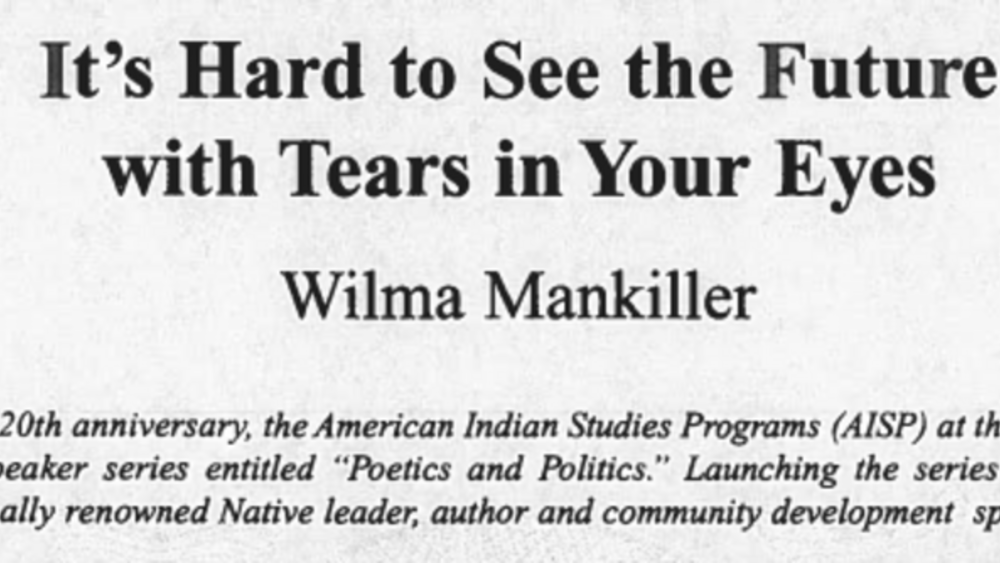
It's Hard to See the Future with Tears in Your Eyes
To commemorate its 20th anniversary, the American Indian Studies Programs (AISP) at the University of Arizona staged a speakers series entitled "Poetics and Politics." Launching the series was Wilma Mankiller (Cherokee), a nationally renowned Native leader, author, and community development…
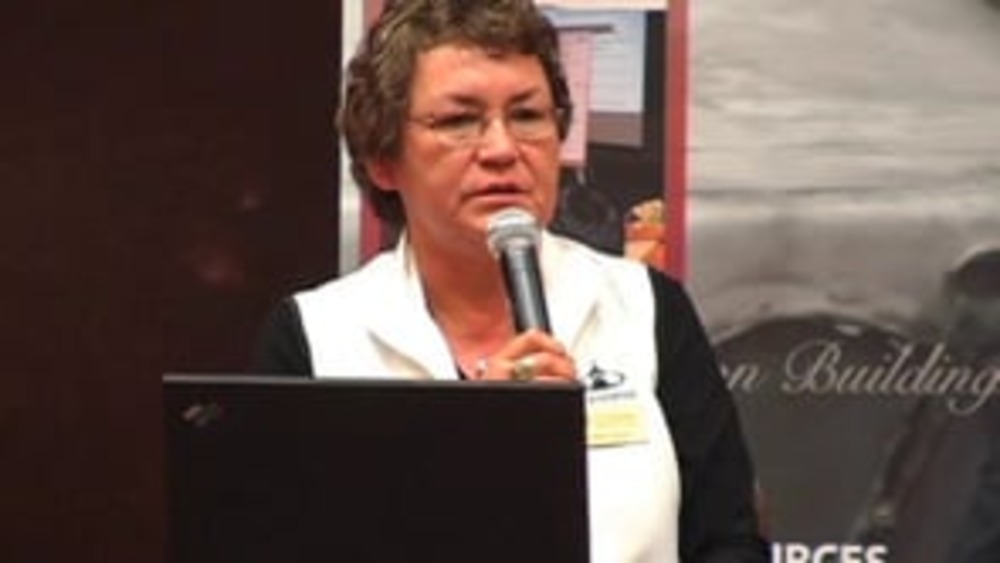
Patricia Ninham-Hoeft, Anthony Pico and Sophie Pierre: What I Wish I Knew Before I Took Office (Q&A)
Patricia Ninham-Hoeft, Sophie Pierre, and Anthony Pico address questions about how to create and maintain a foundation for effective, sustainable leadership within Native nations.
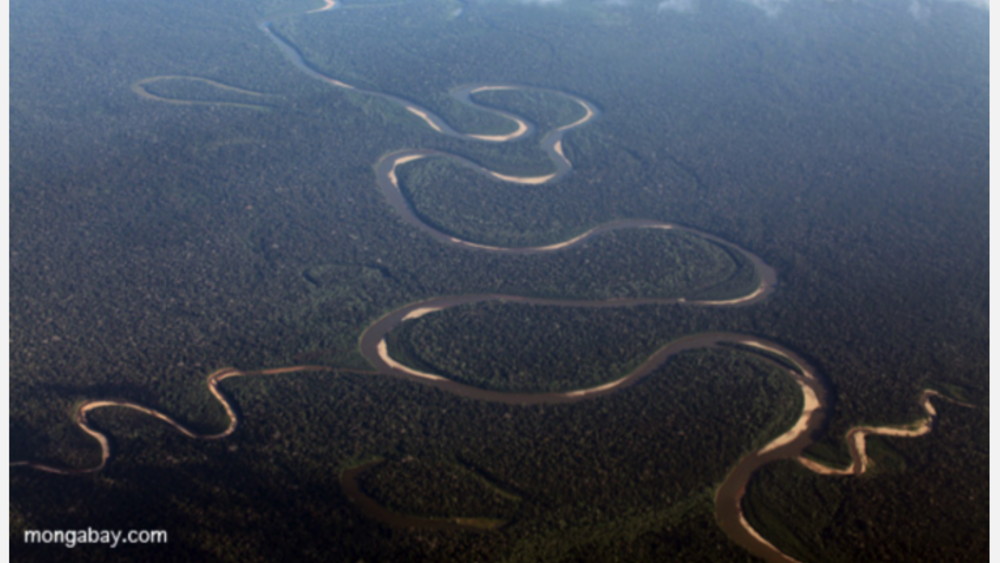
Environmental Wisdom: Keeping Indigenous Stories Alive
"Long ago, when animals were gente..." Those words, uttered countless times by indigenous Amazonian storytellers, blur the boundary between humans and other creatures in the forests and rivers, revealing a different view of the way human and non-human worlds intertwine. "You can't talk about…
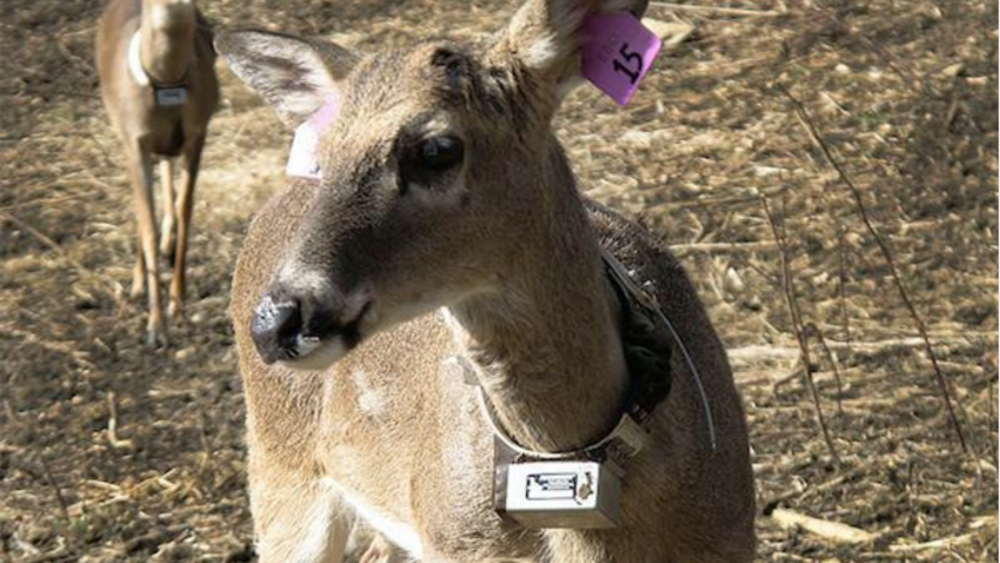
Eastern Band of Cherokee Replenishes Iconic White-Tailed Deer on Its Lands
The Eastern Band of Cherokee, deprived for centuries of the white-tailed deer that symbolizes their culture, are in the process of getting their icon back. Though deer are considered almost a pest in many parts, devouring gardens and proliferating, the Cherokee themselves, who have cherished the…
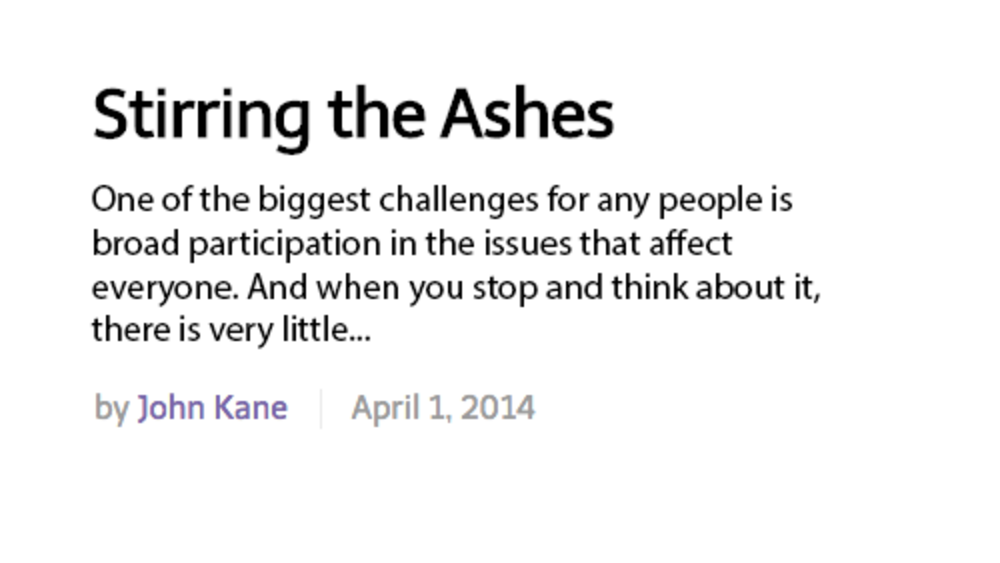
Stirring the Ashes
One of the biggest challenges for any people is broad participation in the issues that affect everyone. And when you stop and think about it, there is very little from the smallest ripples in a family to major calamities in a community that occurs without impacting others. The notion of “mind your…
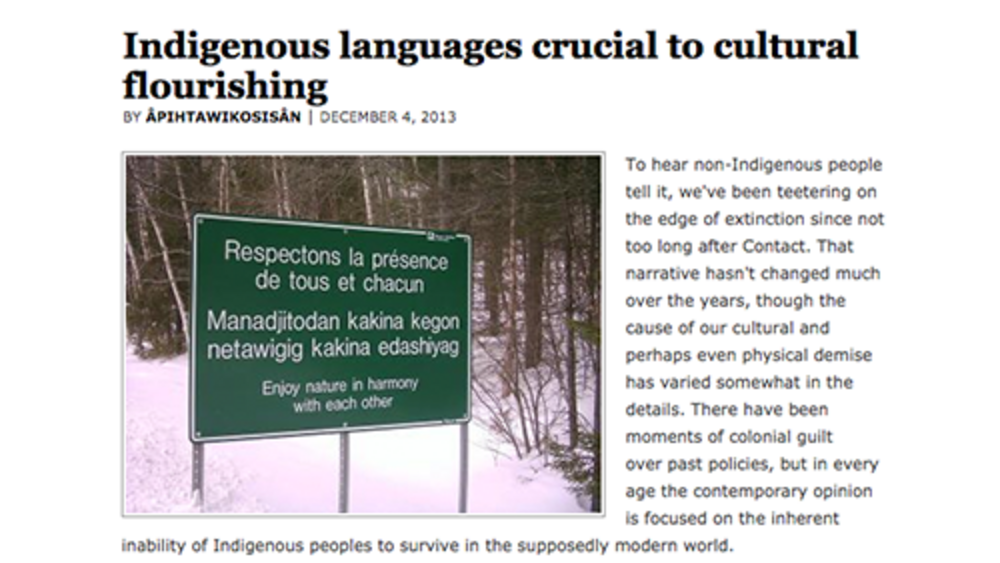
Indigenous languages crucial to cultural flourishing
I believe our languages to be so central to who we are as Indigenous peoples, that I cannot discuss our present or our future without reference to languages. The oppression we have faced, and continue to face, does not define us in the way our languages do. Our resilience, and the fact that we have…
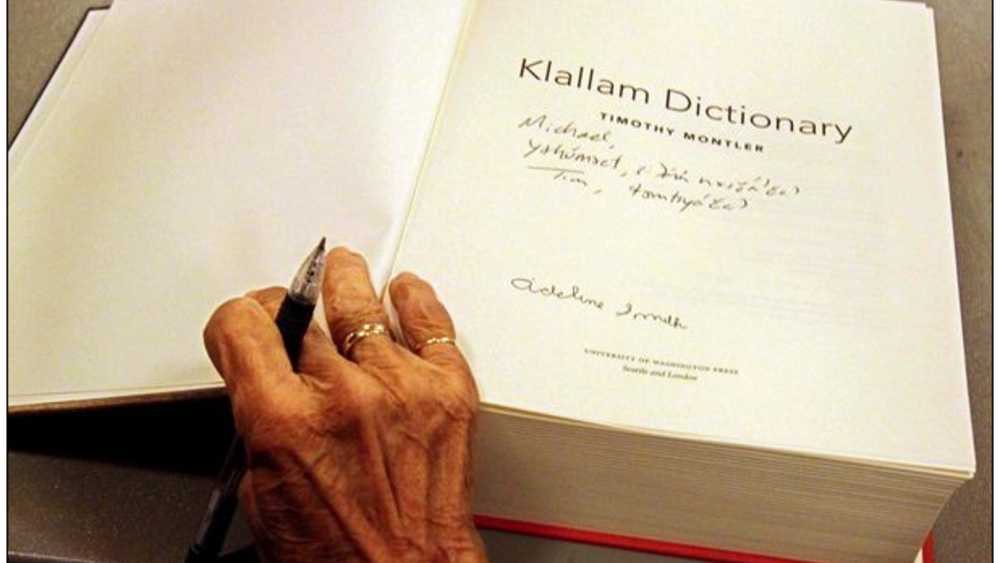
Klallam dictionary opens window into tribal heritage
It weighs in at nearly six pounds, fills more than 1,000 pages, and represents the work of many hands and hearts. The Klallam people’s first dictionary for what was always an unwritten language was built syllable-by-syllable, from tapes and spoken words transcribed into a…
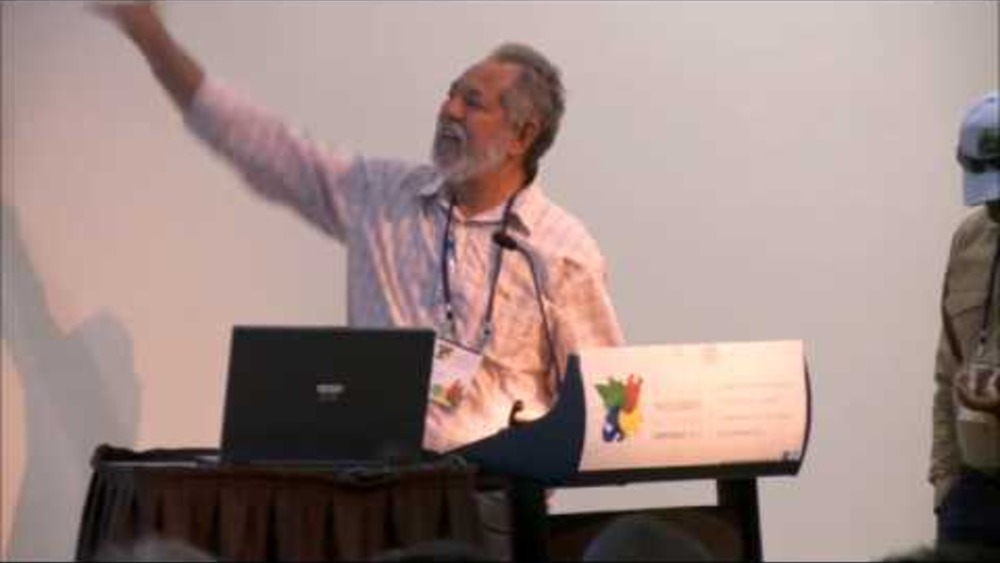
Capturing Traditional Ecological Knowledge in the Torres Strait
Protecting and preserving cultural and ecological knowledge for the future is essential. The Torres Strait Regional Authority has recently developed and piloted a traditional knowledge database working with members of the Boigu Prescribed Body Corporate and the Malu Ki'ai Rangers. The database…
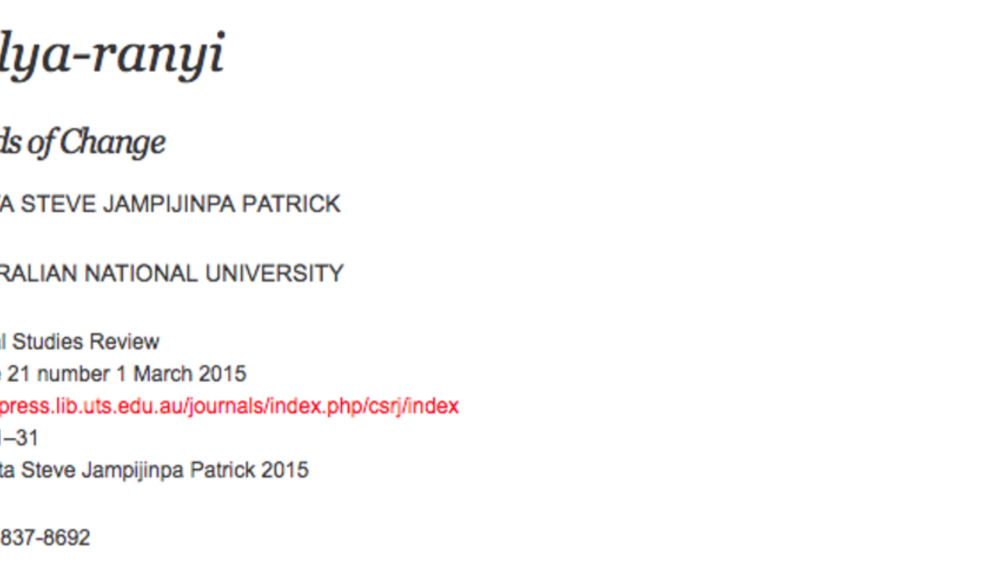
Pulya-ranyi: Winds of Change
Milpirri is a Warlpiri way to get country to express itself. Country is expressing itself all the time. All around Australia, Indigenous people, culture and art express (in various forms) what animals, plants and the elements, including weather and the seasons themselves—look like and speak like…
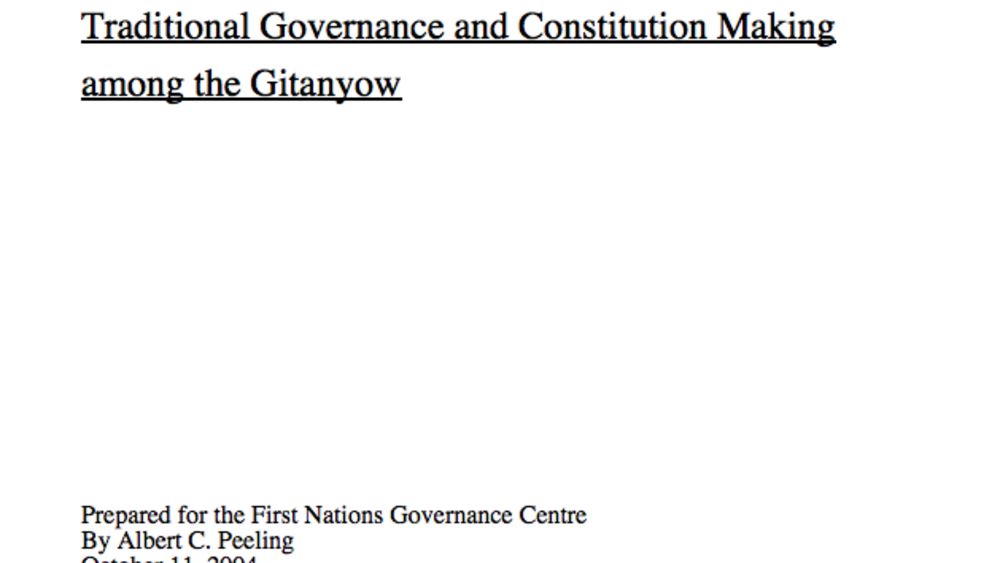
Traditional Governance and Constitution Making among the Gitanyow
This paper is a report on traditional governance and constitution making among the Gitanyow people prepared for the Gitanyow and for the First Nations Governance Centre. The Gitanyow are well along in the development of a national constitution based on traditional governance, and this paper will…
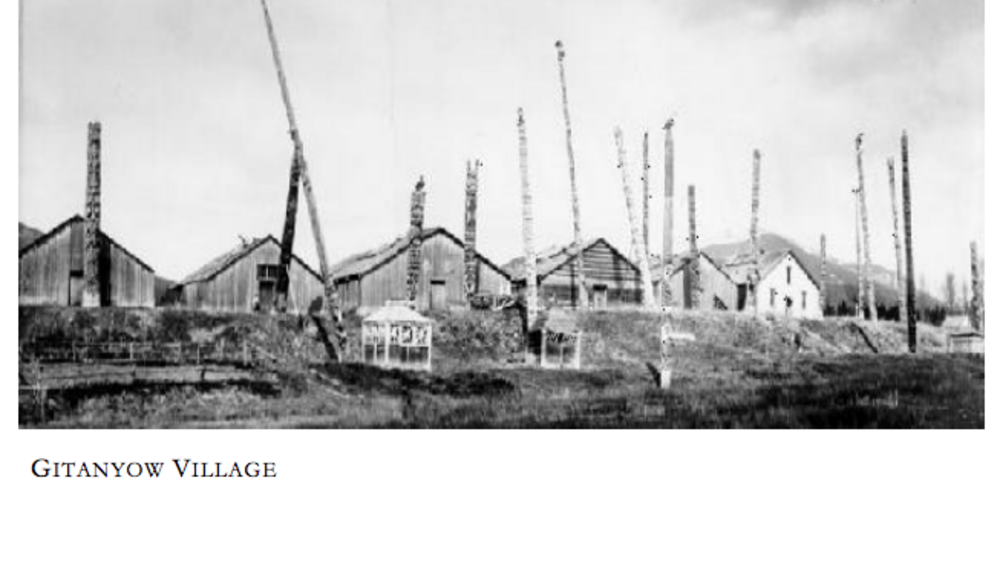
The Gitanyow Ayookxw: The Constitution of the Gitanyow Nation
WE are the Gitanyow peoples. We have a long-standing and rich oral tradition which speaks to all aspects of our lives. This written Constitution must be interpreted and understood in the context of our oral history and oral traditions... THEREFORE, by virtue of our inherent right to…
